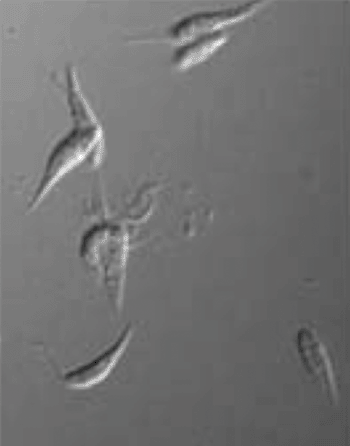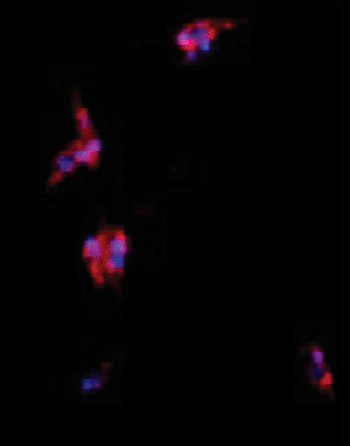Unique Kinase Found Important for Parasite Survival and Virulence
By LabMedica International staff writers
Posted on 01 Jan 2014
A unique protein kinase (PK) secreted by the human parasite Leishmania was found to be important for the parasite's growth and virulence, making it a potential new chemotherapeutic target against leishmaniasis.Posted on 01 Jan 2014
Enzymes of the casein kinase 1 (CK1) family are present in all known eukaryotes and are involved in a wide variety of cellular processes. Scientists at the Hebrew University - Hadassah Medical School (Jerusalem, Israel) led by Charles Jaffe, professor at the Department of Microbiology and Molecular Genetics, and Kuvin Center for the Study of Infectious and Tropical Diseases, investigated the role of CK1 isoform 4, unique to Leishmania (LCK1.4) and one of six putative CK1 isoforms encoded in the leishmanial genome.
In the study published in the journal PLOS One on November 15, 2013, Dan-Goor et al. investigated LCK1.4 in Leishmania donovani (LdCK1.4), a species that causes fatal, visceral disease. Full-length recombinant protein and three deletion constructs were cloned and expressed in E. coli. Only the full-length PK demonstrated significant activity, suggesting that both the N- and C-regions are required for LdCK1.4 PK activity.
Analysis of the LdCK1.4 amino acid sequence identified a putative secretion signal. To determine whether this PK is secreted, a C-terminus FLAG-tagged form, LdCK1.4-FLAG, was constructed and stably overexpressed in L. donovani promastigote-stage cells. LdCK1.4-FLAG or wild-type LdCK1.4 (native, untagged) release by mutant and/or wild-type parasites was monitored by Western blotting with polyclonal anti-LdCK1.4 and anti-FLAG upon transfer to induction buffer. The released PK was clearly observed in cell-free supernatants, peaking at 10 minutes. Differences in kinetics of release, and amounts of enzyme, were observed between mutant and wild type parasites.
LdCK1.4 was localized in fixed dividing-stage promastigotes using antibodies. Intracellular fluorescence was present both as weak diffuse cytoplasmic staining, as well as a strong punctate pattern adjacent to the nucleus and/or kinetoplast (no co-localization with a nuclear staining control was observed). This suggests that CK1.4 may have intracellular, as well as secreted extracellular roles.
Effect of LdCK1.4-FLAG overexpression on parasite growth and differentiation into virulent, metacyclic-stage promastigotes was examined daily. Parasites overexpressing the PK grew significantly faster, noted by day 3, and to higher densities than control cells. Interestingly, the LdCK1.4-FLAG overexpressing mutants differentiated more rapidly in culture, on day 3, into the metacyclic, virulent stage, than the wild-type parasites, as measured by flow cytometry. However, the final percentage of metacyclic parasites in stationary growth-phase cultures, on day 5, was similar in both types of parasites.
The researchers also examined the effect of LdCK1.4 overexpression on parasite virulence. CK1.4 expression increases rapidly during differentiation from the insect promastigote stage to intracellular amastigote stage in the mammalian host. Day 5 stationary phase promastigotes were used to infect mouse macrophages and intracellular amastigote infection was measured 72 hours later. The percentage of infected macrophages was significantly higher (~4.5–fold, p<0.0005) with the mutant, LdCK1.4-FLAG overexpressing parasites (~28%) compared to the wild-type parasites (~6%). Only a small, but significant difference in the number of parasites per infected macrophage was observed. Further characterization of LCK1.4 and its role in parasite survival and virulence will establish the potential of this unique leishmanial protein kinase as a putative drug target.
Related Links:
Hebrew University - Hadassah Medical School















